If you were captivated by the haunting and thought-provoking journey of 'Aniara' (2019), you're likely craving more films and shows that explore similar themes of existential dread, space exploration, and human survival. This article curates 10 compelling titles that share the same atmospheric tension, philosophical depth, and sci-fi brilliance. Whether you're a fan of dystopian futures or psychological thrillers set in the cosmos, this list will guide you to your next cinematic obsession.

Solaris (1972)
Description: Similar to 'Aniara' in its philosophical exploration of human emotions and existential dread in space. Both films delve into the psychological impact of isolation and the unknown, with a slow, meditative pace that emphasizes atmosphere over action.
Fact: Directed by Andrei Tarkovsky, 'Solaris' is based on the novel by Stanislaw Lem. It's often compared to '2001: A Space Odyssey' for its cerebral approach to sci-fi. The film was remade in 2002 by Steven Soderbergh.
 Watch Now
Watch Now 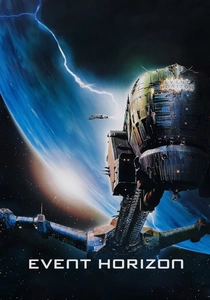
Event Horizon (1997)
Description: While more horror-oriented, 'Event Horizon' shares 'Aniara's' themes of a space voyage gone terribly wrong. Both films depict crews encountering phenomena that challenge their sanity and humanity, with a growing sense of cosmic dread.
Fact: Paul W.S. Anderson's film was initially a box office disappointment but became a cult classic. The original cut was much longer and more graphic, but over 30 minutes were removed by the studio. The design of the ship was inspired by Gothic cathedrals.
 Watch Now
Watch Now 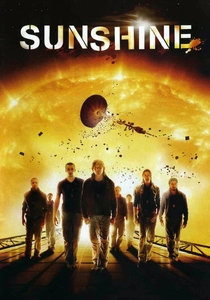
Sunshine (2007)
Description: Shares 'Aniara's' sense of cosmic awe and existential threat. Both films explore how different personalities react under extreme pressure during a mission to save humanity, with psychological tension escalating as the journey progresses.
Fact: Directed by Danny Boyle, 'Sunshine' features an ensemble cast including Cillian Murphy and Chris Evans. The film's third act shifts dramatically in tone, drawing criticism from some viewers. The score was composed by Underworld and John Murphy.
 Watch Now
Watch Now 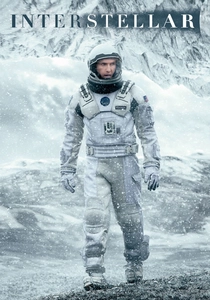
Interstellar (2014)
Description: While more optimistic than 'Aniara', both films deal with humanity's search for a new home in space and the emotional costs of such journeys. They share themes of love, sacrifice, and the passage of time across vast distances.
Fact: Christopher Nolan's epic features groundbreaking visual effects, including a realistic depiction of a black hole. Theoretical physicist Kip Thorne served as scientific consultant. The film's score by Hans Zimmer features a prominent church organ.
 Watch Now
Watch Now 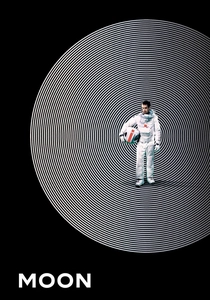
Moon (2009)
Description: Like 'Aniara', 'Moon' focuses on the psychological toll of solitude in space. Both films feature protagonists grappling with their humanity in the face of overwhelming loneliness and existential questions.
Fact: Duncan Jones' directorial debut, 'Moon' stars Sam Rockwell as a lone astronaut. The film's minimalist aesthetic and haunting score contribute to its melancholic tone. It won the BAFTA Award for Outstanding Debut by a British Writer, Director, or Producer.
 Watch Now
Watch Now 
Pandorum (2009)
Description: Like 'Aniara', 'Pandorum' explores what happens to human society in a confined space over extended periods. Both films feature protagonists discovering disturbing truths about their journey and the fate of their fellow travelers.
Fact: The film's title refers to a fictional psychological disorder caused by deep space travel. Dennis Quaid and Ben Foster star in this psychological horror/sci-fi hybrid. The production design was influenced by the look of submarines and oil rigs.
 Watch Now
Watch Now 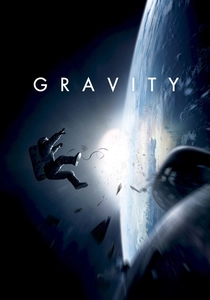
Gravity (2013)
Description: Like 'Aniara', 'Gravity' portrays space as a beautiful but deadly environment. Both films emphasize the fragility of human life in the cosmos and feature protagonists struggling to survive against overwhelming odds.
Fact: Alfonso Cuarón's film won seven Academy Awards, including Best Director. Sandra Bullock's character was originally written as male. The film's opening 17-minute shot was achieved through complex CGI and took over two years to complete.
 Watch Now
Watch Now 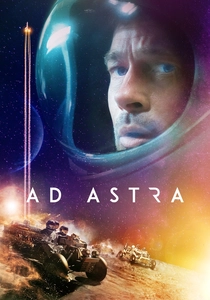
Ad Astra (2019)
Description: Parallels 'Aniara' in its portrayal of a space journey that becomes a metaphor for personal introspection and emotional isolation. Both films use the vastness of space to explore themes of human connection and existential purpose.
Fact: Brad Pitt stars as an astronaut searching for his missing father, played by Tommy Lee Jones. The film's production involved consultation with NASA to ensure scientific accuracy. Director James Gray described it as 'the most realistic depiction of space travel ever put in a film'.
 Watch Now
Watch Now 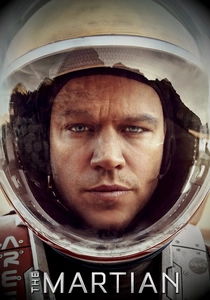
The Martian (2015)
Description: Contrasts with 'Aniara's' pessimism but shares its focus on human resilience in space. Both films examine how individuals cope with extreme isolation, though 'The Martian' takes a more problem-solving approach to survival.
Fact: Based on Andy Weir's novel, Ridley Scott's film stars Matt Damon as a stranded astronaut. NASA consulted on the production, and some scenes were shot at the real-life Wadi Rum in Jordan. The film won the Golden Globe for Best Motion Picture - Musical or Comedy.
 Watch Now
Watch Now 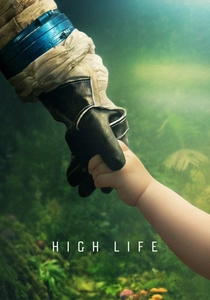
High Life (2018)
Description: Shares 'Aniara's' bleak outlook on space travel, exploring themes of human nature, survival, and the breakdown of societal norms in confined spaces. Both films present a dystopian vision of humanity's future among the stars.
Fact: Directed by Claire Denis, 'High Life' stars Robert Pattinson and Juliette Binoche. It features a controversial scene involving a 'fuck box'. The film was Denis' first English-language feature and her first foray into science fiction.
 Watch Now
Watch Now 








